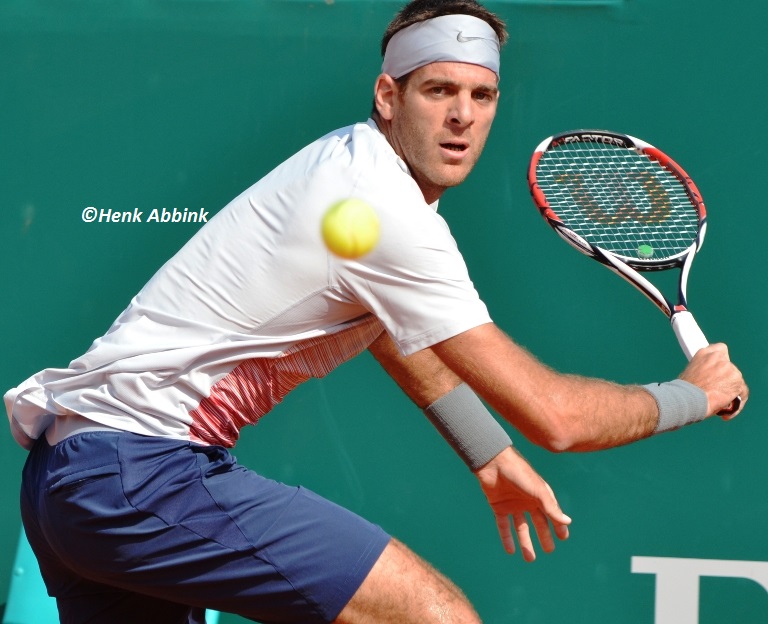
Franco Davin is rarely credited as a top coach. Despite achieving career best results with Juan Martin Del Potro, Gaston Gaudio and Fabio Fognini (they just split), Davin is largely under the radar for his professional tennis acumen. I read some of his Instagram posts and decided to share some of his interesting insights and advices here.
The importance of first shots
Let’s imagine whenever a match starts. What do we know from kickoff?
1) The first shot (serve) is gonna be disputed in every single point.
2) Second shot (return) is going to be disputed on the same or minor percentage. Whenever an ace or double fault takes place, it’s not happening.
3) The third shot will be disputed whenever we lack aces, double faults, winner returns or mistakes during the devolution. It’s logical to think that the third strike will appear in a less frequent way than the first two shots.
4) So here we can follow up with an endless succession of strikes, which will happen in a less frequent way than the previous one.
So let’s say, we can conclude that the important thing is to learn how to play for the first strikes, because they are the most frequent ones. Whenever we play a 10 or 15 rally, we cannot avoid the first one, two or three shots.
We can add also that the way a point develops is deeply influenced by the first strikes.
And something else: if we can direct our ball to one particular spot on the court, we are shortening ours rival area of responses (Tennis is very geometric). With the first strikes, we can force our rivals to direct the ball wherever we like.
———————–
Avoid thinking out loud
In my opinion, one of the most important subjects as a coach is to avoid thinking out loud.
Whenever I think a player needs to improve some aspects of the game, I don’t let them know immediately.
Why? Because I think improvements come after a series of steps:
1) Realizing certain observations from different perspectives.
2) Being sure that the change is necessary and imagining what I want to accomplish.
3)Designing a strategy to achieve the improvement, starting on how to approach the player, creating new exercises, the moment we should force the change and measuring the effectiveness of the work.
We should not forget: every single player is unique and a different strategy should be adapted to everyone.
I really think by highlighting a defect, we are not pushing towards progress. Actually it seems more counterproductive.
Watching, analyzing and take as homework building a strategy is, for me, the most effective thing.
———————
In my opinion, one of the most difficult as a tennis coach, is shaping our player’s profile during their formative process.
And what I mean with this is, imagining how our players will perform whenever they reach the pro level.
It’s right here when a lot of things happen: some of them will wonder how they would like to play, some other will try to adapt the game due to their characteristics and so on. An infinite number of variables will come up at the time of settling a conversation with our player.
Asking our players to highlight 4 main characteristics they would like to acquire to their game in their future help to us coach to organize and guide our work. Incredibly, this question marks us how well our player is walking towards their goals and it also shows us their perception of the game.
I always try to be creative in this process. A few years ago, we asked several U14 players if they could name 4 animals that may have a useful characteristic for playing Tennis.
Answers were pretty good but there were only two of them that came up to me as a complete surprise: “The ant because it will try to win every single point of the match: both the good ones and also the bad ones” (I really thought about Nadal) “The condor, because it will raise to a considerable height and would watch the match from above, understanding everything better” (I thought about Murray)
By watching a Tennis match from above (we’ll discuss this topic during the next post), we can assure that Tennis is a solely geometric sport and this, brings up some consequences.
Knowing where are we going, allow us to choose the best path.
————-
As regards pressure (the main subject we discussed during our last post), we reached @pablo_pecora and he told us: “Whenever players feel under pressure, it’s easy to notice how their systems become unorganized. It’s easy to witness how they give up quickly, they try to avoid the moment with complaints and excuses, they irritate, defeat is just around the corner.
Players who are submerged in their emotional world, absorbed by the consequences of the tie, are inmature as regards competitiveness and may be a victim of high pressure sports.
Only a small group can handle uncomfortable situations, can play to their 100%, continue struggling without a complaint, they stick to a pre-shaped plan, even if it’s the one for an emergency situation, they compete DEFYING THE MOMENT. What happens with the other players? The ones who even responding to an unconscious pattern are not able to overcome, to win. They travel to a predictable model of failure because they are not sufficiently prepared regarding their mentality.
Not knowing our player in order to anticipate pre-expected reactions and not finding these times to practice moments of tension, anguish with the work team, it’s an inconvenient.
We must break pre established beliefs, knowing which kind of emotion may kidnap our player during the middle of the match and have physical, mental routines to face the moment and overcome the situation.”
———–
Epochs
In my opinion, it’s great to introduce young players into the conversation and discussions about Tennis. I think it’s both useful for them and us.
Not long ago, they told me that yesterday’s players wouldn’t be able to match up against the current players.
I’ll add something: I think that the best players from past times, would play differently in today’s Tennis. I’m pretty sure they wouldn’t do the same things they’ve done during their peak: they’ll design a game strategy to overthrow the ones who are higher.
Actually, it’s the same thing they did during their times. They designed a game strategy to defeat their rivals.
Needless to say, they wouldn’t be able to perform the same game in today’s Tennis.
I close my eyes and I imagine myself watching a 14 years old Guillermo Vilas and I’m sure he’ll be planning a way of surpassing Federer, Djokovic or Nadal.
And I’ll go one step ahead: maybe present young players are not thinking about how they can defeat the top players, instead, they are probably copying them. Maybe, this is the main cause why they won’t overthrow them until the Elite players have a low performance due to their age or injuries.
In 2019 Davin published a book in English and Spanish titled “Game, Set and Math.”

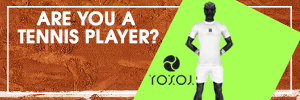

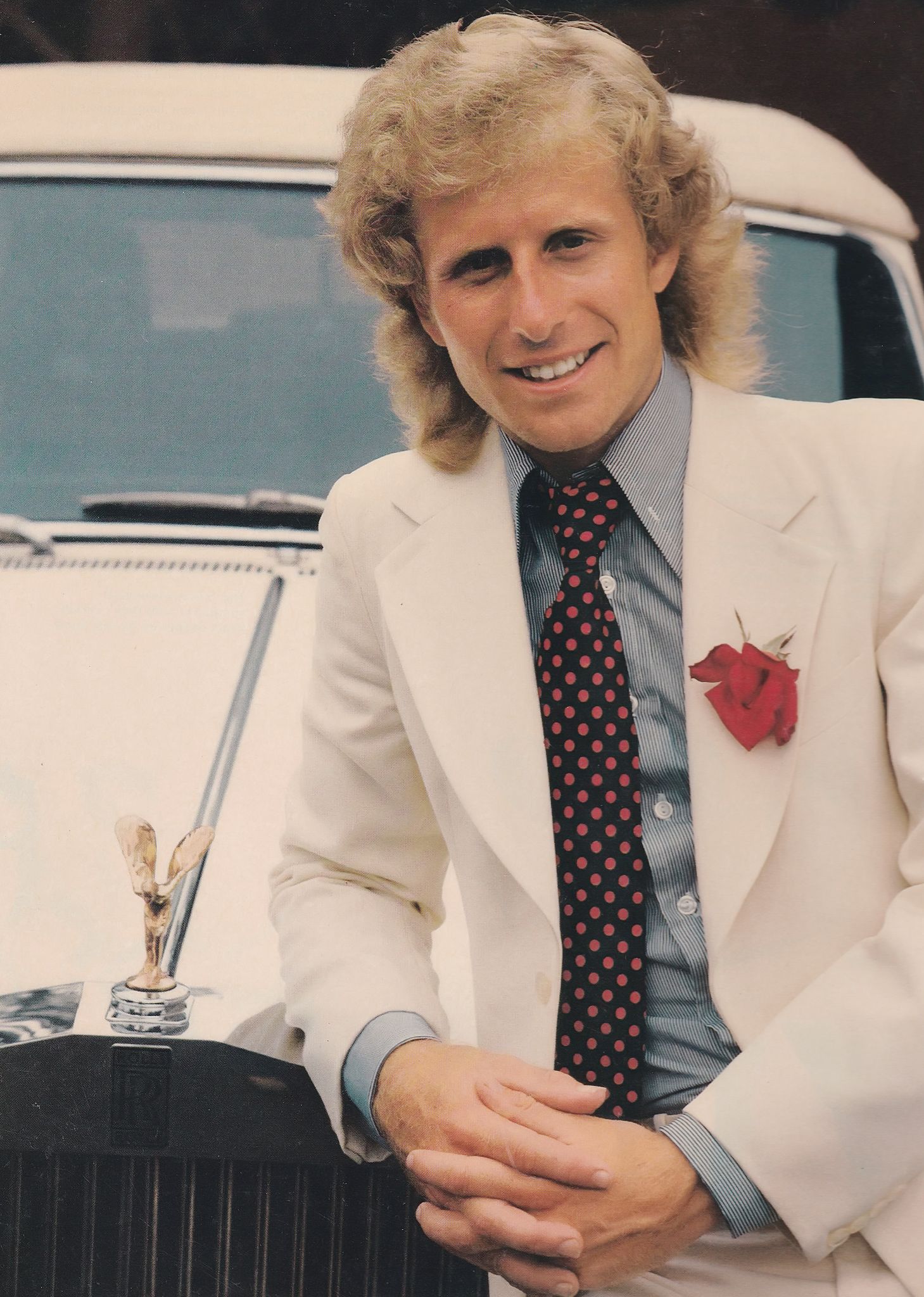
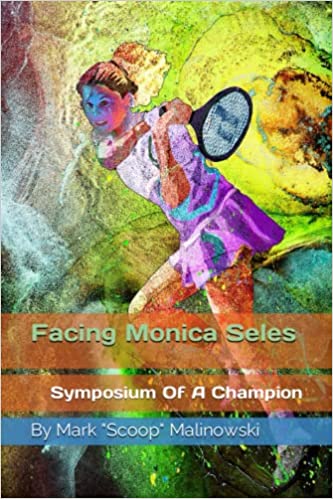
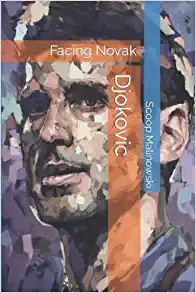
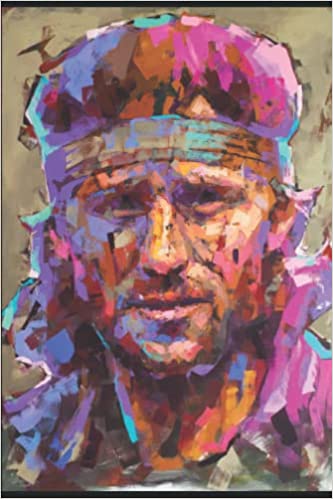
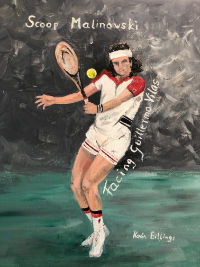
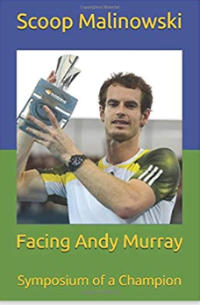
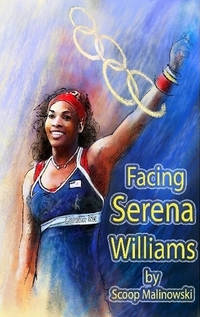
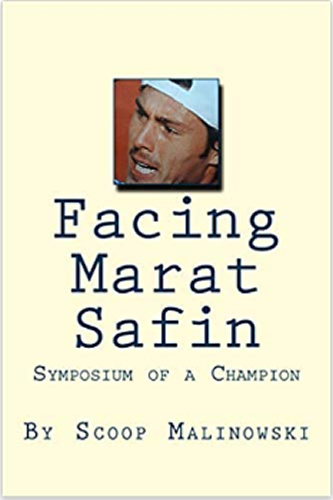
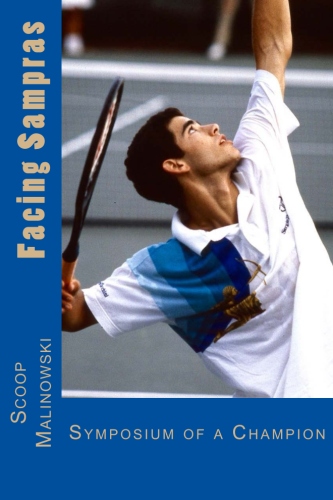
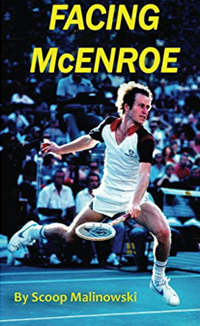
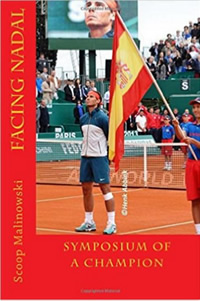
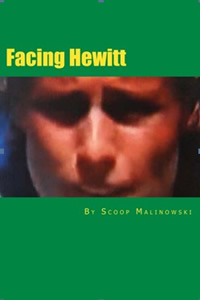
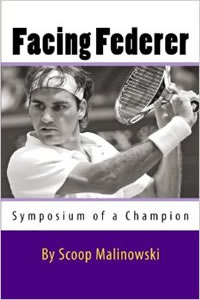
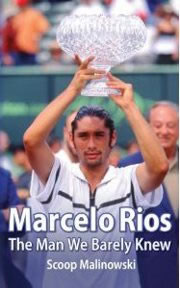

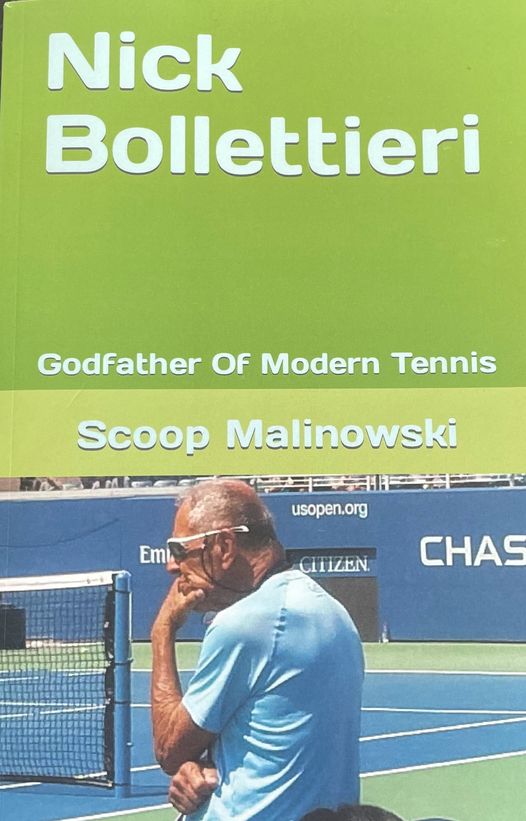

-

-

-

-

-

-

-

-

-

-

-

-

-

-

-

-

-

-

-

-

-

-

-

-

-

-

-

« Previous 1 2 3 4catherine · November 29, 2019 at 1:15 pm
Dan – I agree that Wallace and Joyce were a good match, if Joyce had been a better player Wallace wouldn’t have got the story he wanted – not that Joyce was poor, he was just more representative than someone highly ranked. The two them, DFW and Joyce, developed a relationship, as happens in these cases, but it was clearly one which mattered a lot to Joyce and not much to Wallace.
Janet Malcolm is (or was, she must be in her 80s now) a journalist mainly at the New Yorker and she wrote a book about the Jeffrey McDonald case called The Journalist and the Murderer. The quote which opens the book caused a bit of discussion: ‘ Every journalist who is not too stupid or too full of himself to notice what is going on knows that what he does is morally indefensible.’ And she goes on to explain that.
Another writer I like, Joan Didion, put it more succinctly: ‘Writers are always selling somebody out’.
Didion never wrote about a tennis player, but apparently before she more or less stopped writing she was planning a book on pro basketball. Would have been worth reading.
Hartt · November 29, 2019 at 1:20 pm
I usually reread “The String Theory” every once in a while, so all this talk about Michael Joyce got me to read it again. As you know, it is very long, so I am just partway through it. I took a break to play an online poker tourney, and the break was needed.
Wallace writes in such a colourful way, and he is so good at making you feel you are in the stadium, watching the match.
He can be self-critical, as shown in the following:
“For a while, I thought that Joyce’s rather bland candor was a function of his not being very bright. This judgment was partly informed by the fact that Joyce didn’t go to college and was only marginally involved in his high school academics (stuff I know because he told me right away) [18]. What I discovered as the tournament wore on was that I can be kind of a snob and an asshole and that Michael Joyce’s affectless openness is not a sign of stupidity but of something else.”
Hartt · November 29, 2019 at 2:01 pm
Here is the context of Wallace’s “virgin” comment.
“Michael Joyce in close-up, viewed eating supper or riding in a courtesy car, looks slighter and younger than he does on-court. Close-up, he looks his age, which to me is basically that of a fetus. Michael Joyce’s interests outside tennis consist mostly of big-budget movies and genre novels of the commercial-paperback sort that one reads on airplanes. He has a tight and long-standing group of friends back home in L.A., but one senses that most of his personal connections have been made via tennis. He’s dated some. It’s impossible to tell whether he’s a virgin. It seems staggering and impossible, but my sense is that he might be. Then again, I tend to idealize and distort him, I know, because of how I feel about what he can do on a tennis court.”
Wallace talks quite a lot about how narrow a pro athlete’s life is, because they must have such a narrow focus from a young age. He even compares their world to the limited world of a child.
Wallace ends the essay:
“Whether or not he ends up in the top ten and a name anybody will know, Michael Joyce will remain a paradox. The restrictions on his life have been, in my opinion, grotesque; and in certain ways Joyce himself is a grotesque. But the radical compression of his attention and sense of himself have allowed him to become a transcendent practitioner of an art–something few of us get to be. They’ve allowed him to visit and test parts of his psychic reserves most of us do not even know for sure we have (courage, playing with violent nausea, not choking, et cetera).
Joyce is, in other words, a complete man, though in a grotesquely limited way. But he wants more. He wants to be the best, to have his name known, to hold professional trophies over his head as he patiently turns in all four directions for the media. He wants this and will pay to have it–to pursue it, let it define him–and will pay up with the regretless cheer of a man for whom issues of choice became irrelevant a long time ago. Already, for Joyce, at twenty-two, it’s too late for anything else; he’s invested too much, is in too deep. I think he’s both lucky and unlucky. He will say he is happy and mean it. Wish him well.”
Andrew Miller · November 29, 2019 at 3:18 pm
Yeah, Wallace wrote one of greatest tennis pieces of all time. Books are better but as a profile this was a good one, distortions and all.
Hartt · November 29, 2019 at 4:34 pm
The Ontario Tennis Assoc. has produced a few podcasts, and they have an interview with Bianca, done last April. It was conducted in her home, and Coco made her presence known with the occasional yip. The interviewer asked her quite a bit about her early years as a junior, etc. She said at whatever level she was at she always tried to play against better players because she felt that was how you improved.
It was a reminder of quickly things have changed for Bianca because then her goal was to make the top 15.
Asked who her idol growing up was she said Kim Clijsters because she was physically and mentally strong and had so much variety in her game. She said it was still Clijsters, plus Simona Halep because of the Romanian connection.
The interviewer said that he sees Tennis Canada coaches working with junior players, and they are teaching the slice more than they used to. So a bit of good news on that front!
Bianca talked about how much support she’d received form Tennis Canada, financially and with coaching. But she also talked about how competent the staff there was, how they treated players the same whether they won or lost and how they showed their belief in the players.
Dan Markowitz · November 29, 2019 at 6:45 pm
I think what Wallace was saying about Joyce is not so damning. Yes, Joyce was and probably is stunted to a certain extent because he put so much into his tennis. But most of get “too deep” into our lives even by the age of 22 wherein changing our professions is a big risk. Maybe 22’s early, but he say tennis has made Joyce “a complete man” in that he knows what its like to perform under extreme pressure with big stakes and test himself in ways most of us would never dream of.
Yes, saying Joyce might be a virgin is a bit of an insult at 22, but Wallace says it in a good way, that Joyce is so good, so dedicated, that not even women and sex have been a distraction. I mean Spadea at 30 in “Break Point” said he didn’t look to hook up on the road at tennis events because he thought having sex during a tournament was like doing 500 pushups. It wore you down.
We have to see if Bianca’s route was the best one through the junior ranks, Yes, she won a slam and two Masters at 19 from Canada, incredible, but she’s also already suffered a great deal of injury and maybe she played too much and trained too hard.
Scoop Malinowski · November 29, 2019 at 9:10 pm
It’s almost or it is over-writing, over analyzing the poor dude Joyce.
catherine · November 30, 2019 at 12:40 am
Scoop – yes, I think so too, although I know DFW is almost a saint to some people I’ve never been much of a fan of his. He did ‘use’ Joyce in a way, to write about a tennis player – he found what he wanted in Michael and the whole piece is, to me, over-written and at times a bit pretentious.
I share Dan’s view of Bianca I have to say. I anxiously await her appearance in Auckland and if she turns up and retires, as I said before somewhere, the methods of her whole team should be questioned. I’m still a bit baffled about the 3 weeks she spent travelling around Europe when we were given to understand she was going straight back to Canada for treatment. I don’t believe Canada has not got good sports injury specialists.
Andrew Miller · November 30, 2019 at 8:06 am
Ah the price of greatness, the old Nadal’s knees issue. How else was a Canadian player going to win an enormous title, other than to risk everything?
To me this is a no brainer. Of course it was. There’s a reason Andreescu is only Canadian player with a slam to her name. Part of the drama is we don’t know if she makes it through any match she plays.
Only mistake Andreescu made was to play WTA finals. Money too good to pass up. For top players Asia swing is one fat pot of money.
Scoop Malinowski · November 30, 2019 at 9:00 am
Catherine, Wallace did not seem to have enough respect for Joyce. You don’t judge a tennis player by just his results and his ranking and prize money. I like and respect Joyce a lot and his career and post career impresses me, his tennis mind impresses me. A lot more than it did Wallace it seems. I remember liking his work on Federer but have to read it again.
Hartt · November 30, 2019 at 9:01 am
Andrew, why wouldn’t Andreescu play the WTA finals? She did not have an injury going into the tournament, and she was anxious to win such a prestigious tourney. She also had a goal of finishing the season in the top 3. I doubt that the $ was as big an incentive as lifting the trophy.
Hartt · November 30, 2019 at 9:23 am
It looks like Michael Downey is excited about the Canadian youngsters.
“I think it’s gloves off,” said Tennis Canada president and CEO Michael Downey. “How high these kids go, I don’t know. But we have not seen the best of them.” (cbc.ca)
Hartt · November 30, 2019 at 9:28 am
News on the coaching front:
“Max Mirnyi, one of tennis’s most cerebral players & hardest workers during his long career, is joining Kei Nishikori’s coaching team. Michael Chang will continue to work with Kei during the big tournaments. Quite a coaching duo.” (Christopher Clarey tweet)
Hartt · November 30, 2019 at 9:49 am
More on the coaching front, from Khachanov’s IG:
👋🏻 “Glad to announce a new member of #TeamKhachanov, coach Fredrik Rosengren. He is a well known specialist with great reputation . . . .”
As far as I know, Rosengren last worked with Kyle Edmund.
Hartt · November 30, 2019 at 10:39 am
The ATP players are starting to rival the WTA when it comes to coaching changes.
“World No. 16 Stan Wawrinka has split with his long-time coach Yannick Fattebert but the two remain on good terms as the Swiss tennis star has nothing but good to say about Fattebert.
Wawrinka will continue working with Magnus Norman and Daniel Vallverdu.” (Tennis World)
catherine · November 30, 2019 at 10:53 am
But I thought Vallverdu was now working with Ka Pliskova.
Has he cloned himself ?
catherine · November 30, 2019 at 11:24 am
‘I used to be such a tomboy but now I want to dress up like her (mother) and do my makeup’.
Quote of the year from Bianca Andreescu in W magazine.
Do hope she doesn’t forget how to play tennis while she’s trialing her makeup and modelling new outfits.
Hartt · November 30, 2019 at 12:48 pm
When Wawrinka announced Vallverdu would be coaching him he talked in terms of the grass season, so perhaps they were wrong about Dani still being with Stan. Who knows, I will never figure out these coaching relationships.
Hartt · November 30, 2019 at 12:51 pm
I don’t think it is a problem if Bianca enjoys fashion, as long as her tennis has priority. She seems far too ambitious to let other things get in the way of tennis.
Hartt · November 30, 2019 at 2:39 pm
Some good news:
“Even in the off-season, Roberto Bautista Agut is adding unforgettable moments to his banner year. The Spaniard tied the knot in a beautiful ceremony with longtime partner Ana Bodi Tortosa.” (ATP site)
Of course people were sad about RBA’s father passing away, but now there is happy news.
Harold · November 30, 2019 at 3:13 pm
I never understand some coaching choices. What can Mirnyi add to Nishikori’s game, besides a new work ethic..Wouldn’t you look for a more aggressive base-liner, closer to your size, not a 6”6 serve and volleying doubles specialist( his singles career faded fast)
Scoop Malinowski · November 30, 2019 at 7:48 pm
Mirnyi will be a top coach. He knows the game inside out, singles and doubles. Strong work ethic, lots of experiences, knows many tricks to improve a player an sustain longevity. He is most likely a major upgrade from Dante Bottini. Smart move by Kei.
Harold · November 30, 2019 at 8:41 pm
Nishikori should have begged Agassi to coach him
Andrew Miller · December 1, 2019 at 1:02 am
Miryni. If Nishikori wins a slam we’ll celebrate Miryni. If not we’ll blame everything on him 🙂
catherine · December 1, 2019 at 1:28 am
Coaches for courses – we don’t know what goes on in players’ minds but maybe a ‘strong work ethic’ is something Kei is looking for, plus longevity.
Muguruza rehired Martinez because she wants one or two more titles and Conchita keeps her calm, she says. I’d guess not so much for the technical side.
Kerber picked on Kindlmann rather than someone more high powered because she needs an undemanding coach who can nurse her through her last year and let her relax
into retirement. Shouldn’t think he cost much either.
Don’t know if Murray has a regular coach at the moment but I would think his aims are like Angie’s – this is most likely his last year so he’ll want someone who understands his situation.
Scoop Malinowski · December 1, 2019 at 9:21 am
Maybe Agassi should have begged Kei to coach him. I know of one example where a former player/TV commentator tried to coach Giorgi (found out from father/coach of an ATP player who helps coach Giorgi). It probably happens a lot more than we know.
Andrew Miller · December 1, 2019 at 1:20 pm
Agassi, Sampras don’t want to muddy their legacy. And it’s not clear they’ve impacted anyone’s game beyond Verdasco, who listened to Reyes and who Agassi told, “you can’t lose to anyone other than Nadal and Federer.”